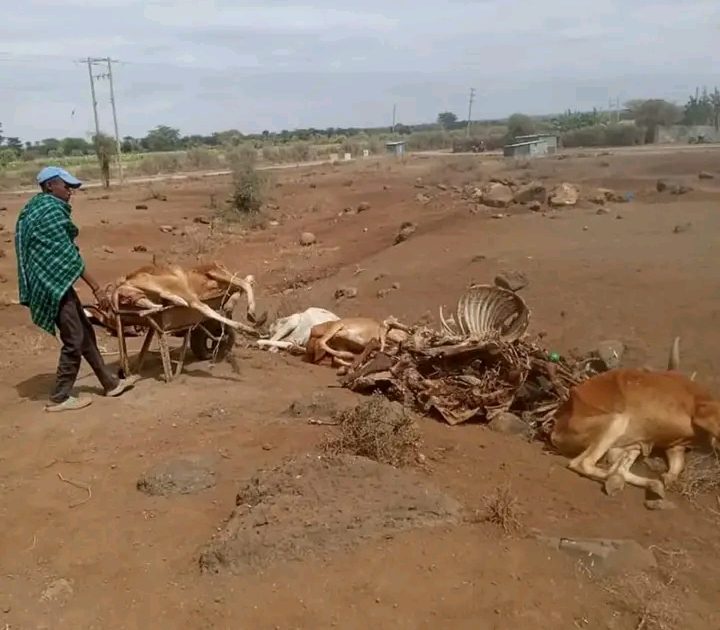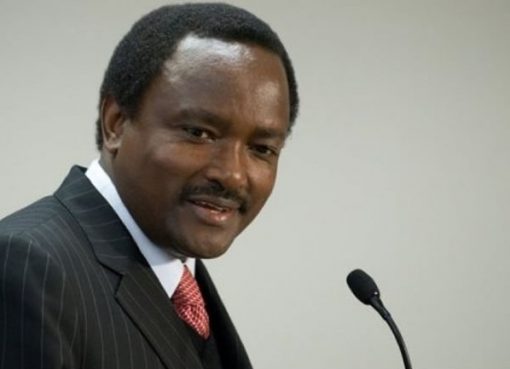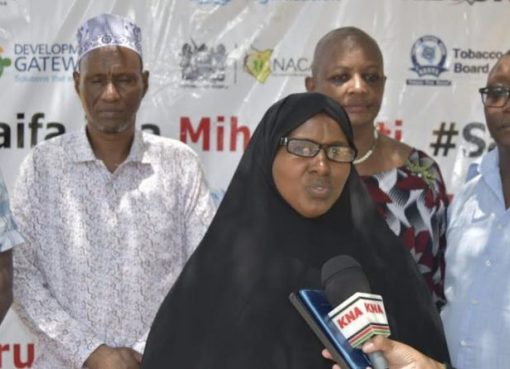With the drought situation in Kajiado worsening, the Kajiado County government in partnership with the World Bank and the State Department of Livestock have introduced a livestock insurance scheme to safeguard against more livestock losses.
Speaking to the press in his office in Kajiado, Kajiado Governor Joseph ole Lenku said that 30,000 households will benefit from the livestock insurance project.
“Some 20,000 households will have their livestock insured for free courtesy of the World bank while 10,000 other households will pay a highly subsidized fee to have their livestock insured,” said Ole Lenku.
To enable this, the county has been divided into eight clusters targeting the nomadic areas where residents are involved in the meat value chain.
The eight clusters are; Iloodokilani cluster comprising of Magadi and Iloodokilani wards, Kaputiei cluster comprising Isinya, Kaputiei North, Oloorsikon Sholinke and Kitengela wards. Kiek Onyokie cluster comprising of Kiek Onyokie, Mosiro and Ewuaso wards, Kuku cluster which comprises Kuku, Rombo and Kimana wards.
Other clusters are; Merrueshi cluster comprising of Poka Kenyawa ward and Imbirikani. Matapato cluster comprising of Matapato North and South wards, Olgulului cluster which comprises of Entonet ward and Eselenkei and Olkeria cluster which comprises of Ildamat, Ildalalekutuk and Imaroro wards.
“The process begins on Monday and livestock officers from the livestock department will spearhead the process assisted by chiefs and village administrators and where applicable nyumba kumi elders so that we are able to ensure that the people who get the free livestock insurance are the most deserving including those whose who lost substantial numbers of livestock,” added the Governor.
Ole Lenku urged the pastoralists to take up the insurance immediately as it is one of the long term measures put in place to cushion them against incurring massive losses.
In June 2022, The World Bank Board of Directors approved $327.5 million to cushion pastoralists in Djibouti, Ethiopia, Kenya, and Somalia from the impacts of drought and better connect them to markets.
The De-risking, Inclusion and Value Enhancement of Pastoral Economies in the Horn of Africa (DRIVE), will enable the region to adapt to the impacts of climate change, commercialize livestock production in pastoralist communities, and ensure inclusion of the marginalized and vulnerable groups such as women in the sector.
A press release by the World Bank in June 2022 stated that 250,000 households are expected to benefit from the project representing 1.6 million pastoralists and their dependents.
The press release further noted that the project will enable $572 million in private capital to help pastoralists tap into drought insurance and savings, get access to digital accounts, and attract more private investment in pastoral areas.
“About 2,500 pastoralists groups will be connected to markets so that they get better value from their livestock rearing activities, as currently, they are at the bottom of the value chain,” reads the press statement.
By Diana Meneto




